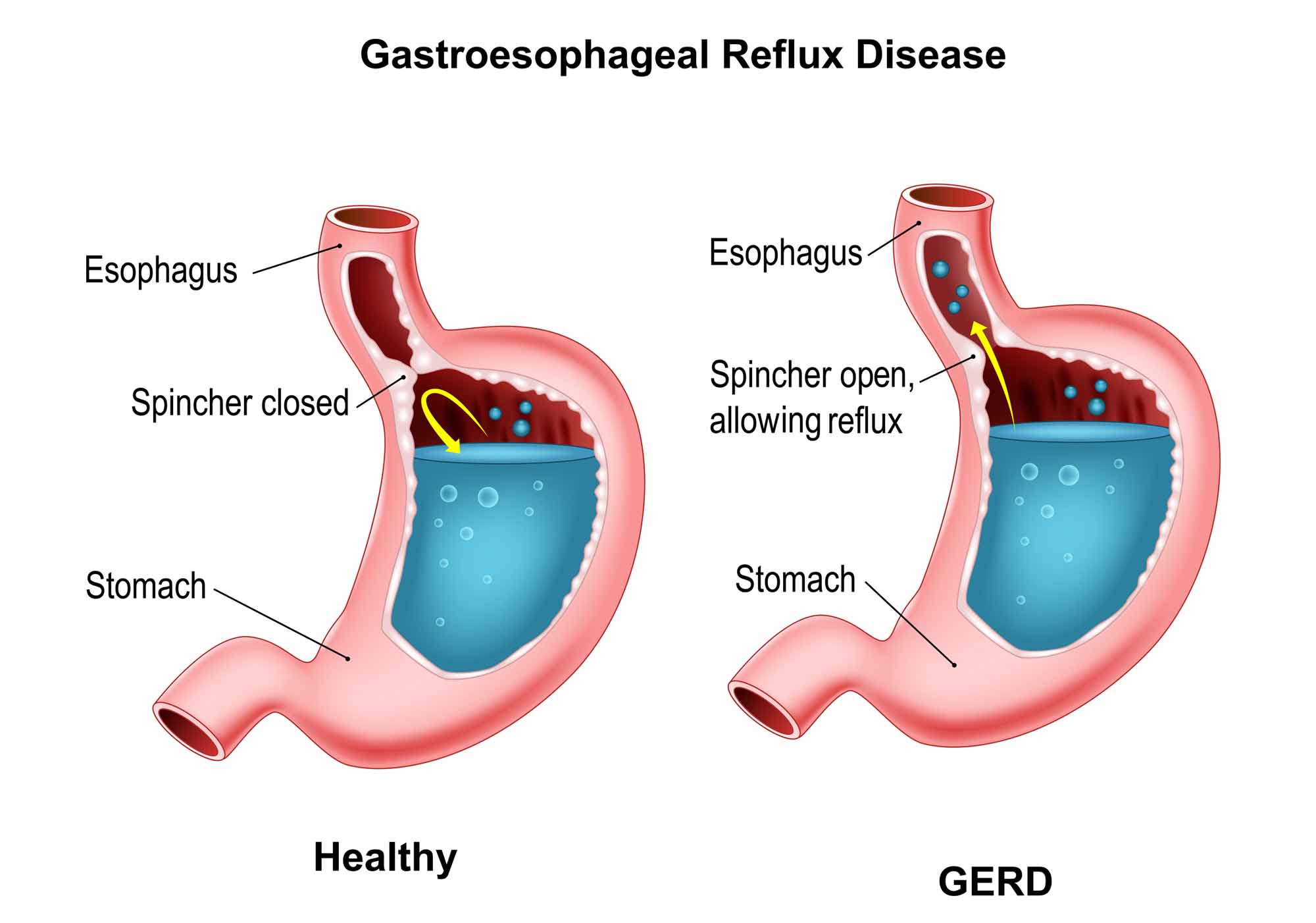
Individuals with massive hiatus are prone to hiatal hernia. Hiatal hernia develops between the diaphragm and the esophagus. When the part of the stomach is pushed above the diaphragm into the chest, it can cause complications. When the weak muscles in that diaphragm result in a hernia, surgery may be required.
Hiatal hernia can cause acid reflux or Gastroesophageal Reflux Disease (GERD). The most common symptom associated with hiatal hernia is acid reflux. Most hiatal hernias are managed medically with antacids and do not require surgical treatment. However, large hiatal hernia or patients with severe reflux should be treated surgically.
Are you suffering from GERD? Call Now
What is GERD?
GERD occurs when the food that went into the stomach flows back into the esophagus, a burning sensation on the upper chest can be felt. The food which contains stomach acid that refluxes irritate the lining of the throat.
Heartburn is a Burning Feeling
The lower esophageal sphincter (LES) is a ring of muscle that is responsible for closing when food has entered the stomach to begin digestion. The LES, when it relaxes at the wrong time, causes heartburn due to the acid that goes back to the lower part of the esophagus. That acid reflux is called heartburn. You get heartburn when there is a burning sensation on your chest, and you taste a sour liquid at the back of your throat.
What is Laparoscopic Gallbladder Surgery?
Can it be corrected?
Heartburn can be avoided by making adjustments in the way you eat and in modifying bad habits that define your lifestyle:
- If you are obese, losing weight may release the pressure in LES and improve reflux symptoms
- Avoid spicy foods, caffeine, alcohol, and fatty foods that trigger reflux
- Avoid eating big before bedtime as this will disrupt normal digestion
- Avoid smoking
Not all people with a hiatal hernia need to undergo a surgical procedure. Medications and lifestyle changes can help to correct symptoms of hiatal hernia. But if symptoms are severe and impact your lifestyle, hiatal hernia surgery may be the best treatment.
Laparoscopic Repair
This procedure involves the laparoscopic technique and is the most common type of hiatal hernia surgery. This technique is a minimally invasive procedure where few small incisions on the abdomen are made. Laparoscopic hiatal hernia surgery is less painful, has minimal scarring, shorter hospital stay, and faster recovery. Laparoscopic hernia repair typically involves a Nissen fundoplication, which involves reinforcing and strengthening the connection of the esophagus and stomach to prevent reflux.
Hiatal Hernia Surgery Recovery
Most people who undergo this type of repair surgery experience pain in the abdomen and chest. Difficulty in swallowing is also reported but usually only lasts about 48 hours after the surgery.
Typically, individuals who have undergone hiatal hernia surgery can go home on the same day as the surgery. That is if they have recovered from the anesthesia. If not, they will need to stay a day in the hospital and can go home the next day.
After surgery, a patient is advised to refrain from lifting heavy weights, practice breathing exercises to regulate and strengthen the diaphragm and follow the diet recommended by the doctor.
If you want to know more about hiatal hernia surgery, call now to book an appointment